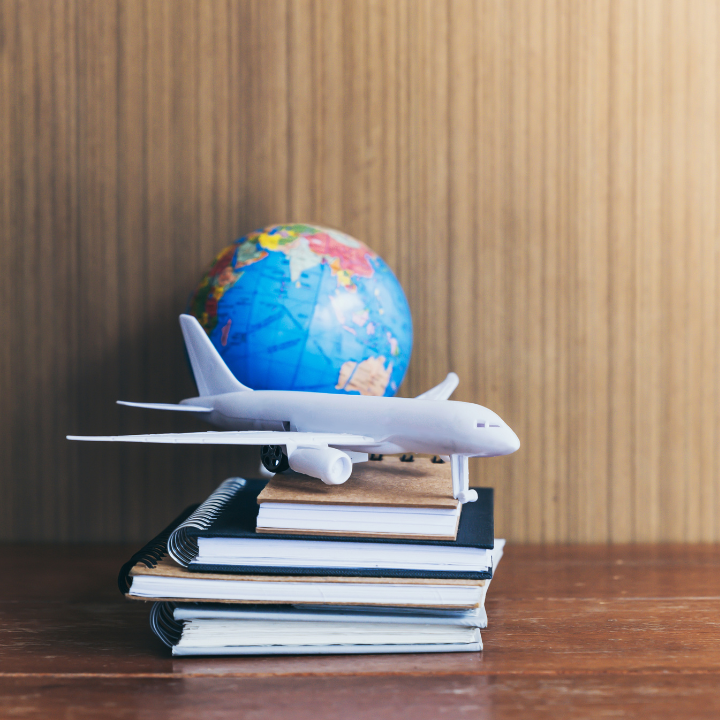
Today’s college students strive for more than merely excelling academically. In addition to the intense requirements of attending lectures, finishing assignments, and aiming for top grades, there exists a rewarding realm of learning and self-discovery through travel.
The insights and experiences gained from visiting new destinations provide significant advantages that can enhance a student’s educational journey and personal development far beyond the confines of a typical classroom environment. There are so many benefits of travel on students.
Many students depend on high-quality paper writing services for academic assistance. However, to find essay writer in Texas and using travel as an educational method introduces a new dimension of hands-on learning and personal growth. This experience extends beyond assignments and textbooks, offering real-world exposure and valuable life lessons.
Broadening Educational Perspectives Through Travel

Travel offers students a distinctive chance to put their academic learning into practice in real-world environments. For example, history feels more concrete when exploring ancient ruins, languages become more vibrant when spoken in their countries of origin, and geography lessons become richer when observing various landscapes firsthand. These practical experiences greatly enhance students’ understanding, making their educational journey more impactful and memorable.
Moreover, traveling exposes students to diverse global viewpoints across various disciplines, including political science and environmental studies. Experiencing different social systems and environmental issues deepens their understanding and promotes critical analysis. This exposure can also ignite academic interests and research ambitions, motivating students to delve deeper into subjects they encounter during their travels.
Development of Relationships and Awareness of Diverse Cultures

Travel immerses students in various cultural environments, compelling them to understand and value different lifestyles. This experience is vital for nurturing cultural sensitivity and global awareness.
It motivates students to cultivate empathy, recognize different viewpoints, and master communication across cultural divides. In our interconnected world, these skills are essential as cultural competence grows more important.
Furthermore, traveling allows students to encounter various local social norms and etiquettes, boosting their adaptability and social intelligence. Interacting with different customs and traditions helps them appreciate the importance of respect and openness in a multicultural world.
This insight is especially advantageous for students who will be part of diverse teams or work in international environments in their future careers. It is certainly one of the many benefits of travel on students.
Building Confidence and Self-reliance

Exploring new places, tackling issues independently, and making choices in unexpected scenarios while traveling greatly enhance a student’s confidence and independence. These experiences build resilience and adaptability, crucial for personal development and career success.
Engaging in self-exploration encourages students to take initiative and be proactive, boosting their confidence in making decisions and adapting to new challenges and settings. This personal growth is crucial for equipping them to navigate the uncertainties and complexities of the professional world.
Networking and Relationship Building

Traveling allows students to encounter various people, including other travelers and residents. These interactions not only enrich the travel experience but also help to build a global network. These connections can pave the way for future job prospects, partnerships, and enduring friendships.
Building these relationships provides a richer comprehension of global challenges and various professional environments. Networking while traveling can open doors to opportunities like international internships, collaborative research projects, and joint ventures.
The connections forged through travel can influence a student’s future career trajectory and global perspective. It is certainly another one of the great benefits of travel on students.
Valuing Diversity and Cultivating Thankfulness

Encountering diverse ways of life and observing the difficulties in different regions can enhance a student’s gratitude for their situation. This frequently results in a greater appreciation of their home, community, and educational opportunities. Personal experiences with global issues often inspire a commitment to social and environmental causes.
This feeling of thankfulness enhances their appreciation for educational opportunities. Students frequently come back with a refreshed commitment to their academics, understanding the importance and benefit of education.
The experiences obtained through travel can foster a sense of responsibility and a desire to make a positive impact on communities and the broader world.
Promoting Environmental Consciousness and Sustainability through Tourism

Traveling profoundly affects college students, particularly by increasing their environmental awareness and encouraging sustainable behavior. During their travels, students are exposed to different ecosystems and directly observe the consequences of environmental challenges such as climate change, deforestation, and the necessity for wildlife conservation.
This exposure helps shape their understanding of the fragility of our planet and underscores the urgent need for sustainable practices.
Furthermore, this kind of exposure prompts students to reflect on their impact on the environment. They grow more mindful of the necessity for sustainable travel habits, like minimizing plastic consumption, choosing eco-friendly lodgings, and partaking in responsible tourism.
This increased awareness frequently leads to more eco-conscious actions in their everyday routines, helping to foster a sustainable future.
Witnessing the Effects of Climate Change

Students might explore regions significantly affected by climate change during their journeys, including areas with melting glaciers, drought conditions, or severe weather-prone communities.
Observing these changes first hand instills a strong sense of reality and immediacy regarding global environmental challenges. It transforms the notion of climate change from a theoretical topic covered in classrooms into a concrete phenomenon with noticeable effects.
Additionally, these experiences can motivate students to become climate action advocates. Upon returning from their travels, they often possess a refreshed dedication to environmental activism and engage in sustainability efforts on campus or within their local communities.
This shift from being passive learners to actively contributing to environmental conservation is one of the most significant advantages of travel in a student’s educational path.
For college students, travel goes beyond just taking a break from their studies. It’s a crucial aspect of their growth, both educationally and personally. The lessons and experiences they gain from traveling are equally important as the scholarly knowledge they receive in the classroom.
While managing their academic duties and utilizing services like top-notch paper writing assistance, incorporating travel into their education creates a comprehensive, transformative experience. This helps shape them into knowledgeable, empathetic, and adaptable individuals, prepared to make meaningful contributions to the global community.
Can you think of any other benefits of travel on students? Did you take any trips as a student that really helped to define who you are or shape your life?














